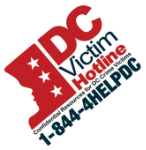Safety Planning
A safety plan is a personalized plan that includes practical information about staying safe, physically, and emotionally. A useful safety plan includes all of the important information needed to help you take control of an unsafe situation and move forward after experiencing a crime. When creating a safety plan, it is helpful to:
- Think through any and all resources you have available to you (such as family members, friends, private savings accounts, access to transportation, child care)
- Decide what your personal short and long-term goals are (Do I want to find a way to stay where I am? Am I ready to leave my situation? How will I support myself if my situation changes?)
- Brainstorm some “what ifs” and come up with a back-up plan when it is possible
What can I do?
Though safety plans are personalized to you and your situation, basic safety steps that apply to most victims include:
- Seek Trusted Help – Let trusted family, friends, teachers, or neighbors know of your situation and ask them to help you stay safe. Have a signal or a code word that you can use to let them know if you are in trouble.
- Keep Important Items Handy – Make sure you have easy access to money, medications, phone numbers, and important documents if you have to leave in a hurry. You may want to have a bag hidden or left with a friend with important items for you and your children.
- Know Where to Go – Think about safe places where you can go if you have to leave suddenly; consider friends, trusted family members, or a local shelter. Try practicing how to leave safely so you will be prepared if the time comes.
- Alter Your Routine – Regularly change the routes you take to work or school so your routine is not predictable.
- Protect Your Home – Consider changing the locks on your doors, getting a new phone number, putting your lights on a timer, and keeping your windows shut when you are not home.
- Learn About Your Legal Options – Find out about your legal options such as protective orders/restraining orders against an abuser, alternative child custody arrangements, and civil remedies.
- Remember to Care for Yourself – Try to be kind to yourself and allow yourself time and patience as you move forward; everyone responds differently to crime. Practice self care and healthy coping skills.
- Protect Your Technology – If your technology is compromised, visit our Technology Safety Plan page for more information.
